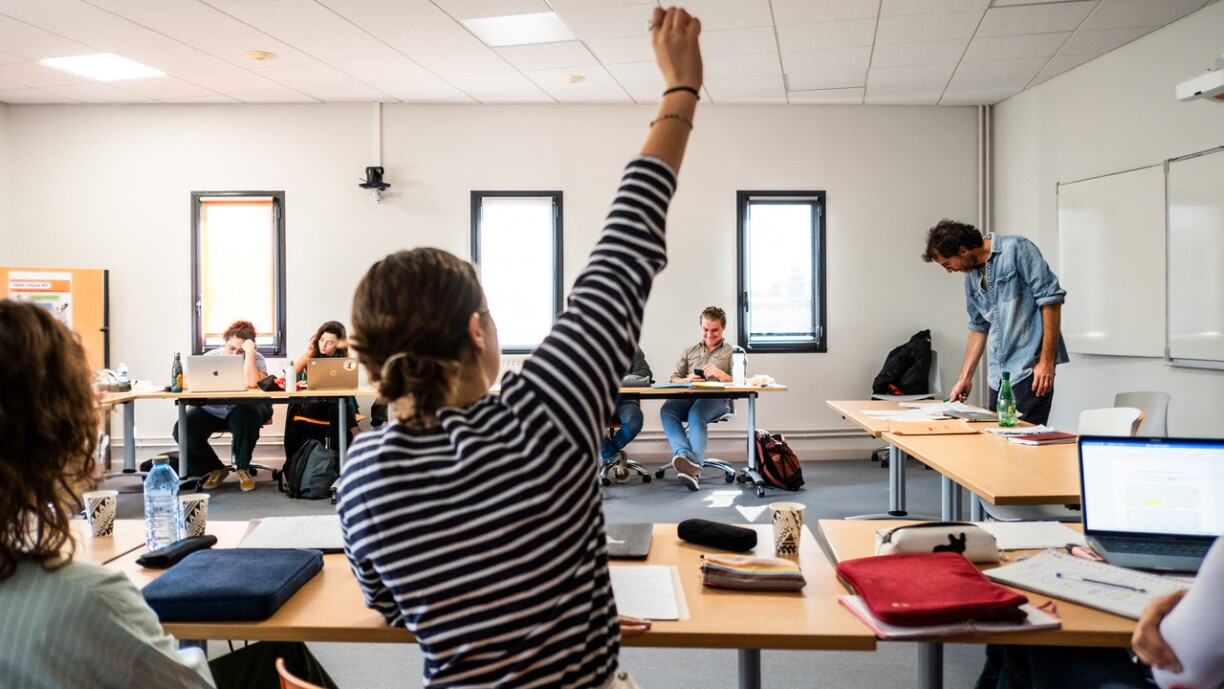
A long-standing issue continues to plague Luxembourg’s education system: the persistent inequalities faced by children from disadvantaged backgrounds. Despite decades of efforts by various Education Ministers to level the playing field, these disparities remain deeply rooted, a new report from the OEJQS reveals.
The comprehensive report highlights weaknesses in the current system and proposes measures to address these challenges. While many in the education sector are already aware of these unfortunate realities, the report found that disparities begin alarmingly early—before children even enter regular school.
Précoce, a preparatory stage for children aged three and above between crèche and primary school, offers an early introduction to structured education. While attendance is not mandatory, it provides a good opportunity for young children, especially those from non-Luxembourgish backgrounds, to hear and practice Luxembourgish. However, participation remains skewed.
Statistics show that approximately 75% of children in Luxembourg attend précoce, but this seemingly high number conceals disparities. Luxembourgish and French-speaking children, often from higher-income families, are significantly overrepresented compared to children with a Portuguese background. As a result, children from disadvantaged families remain underrepresented, missing out on early learning opportunities that could set them up for success.
The OEJQS report suggests several strategies to address these inequities. One key recommendation is to conduct a survey to understand why some families opt to send their children to crèche or keep them at home rather than enrolling them in précoce. With this information, the benefits of précoce attendance could be more effectively communicated to parents.
To make things easier for the future, the report also proposes an automatic registration system for précoce, where all children would be enrolled by default, requiring parents to opt out if they choose not to participate. This approach is also used in Germany for the German précoce counterpart, Kita.
Language remains a significant hurdle for many young learners. The OEJQS report emphasises the need to reassess the language policy in Cycle 1, advocating for intensive and individualised support for families early on. The current system’s shortcomings are evident in the profiles of children who end up in the preparatory regime, a pathway often associated with lower educational qualifications. Notably, Portuguese-speaking boys from disadvantaged backgrounds who have had to repeat a year in primary school are disproportionately affected.
Another troubling revelation is that many school principals and teachers are failing to comply with existing laws. Specifically, instead of offering pupils a “cycle extension” or allongement de cycle, as mandated by a 2009 law, children are still being forced to repeat academic years.
The report notes that this practice not only breaches the law but also has lasting negative effects on pupils, who often perceive repeating a year as a form of punishment.
The report stresses the need for regional school directors to conduct systematic and rigorous checks on schools to ensure they are operating within the legal framework and prioritising the best interests of their pupils.
The report also calls for a review of the policies governing student promotion in lower secondary school. Under the current system, students in 7th and 6th year in general secondary schools are automatically promoted, a practice that has been heavily criticised by teachers and unions, as it merely postpones the problem to the following year.
The statistics are alarming: Currently, almost 1 in every 4 students in the 5th grade end up having to repeat the year, indicating that something is clearly not working. It appears that these students are not given the right support at the beginning of their time at secondary school, such as through individualised tutoring.
While the idea of individualised tutoring is not new, the report laments that it has yet to be implemented properly across all schools. Closer oversight and tailored educational assistance are particularly needed at both the general secondary level and in vocational training, where many students tend to struggle most.
The report concludes with a stark observation:
Luxembourg’s educational policy continues to follow a path of bracing students for failure rather than proactively fostering their success.
You can listen to the RTL report in Luxembourgish here: